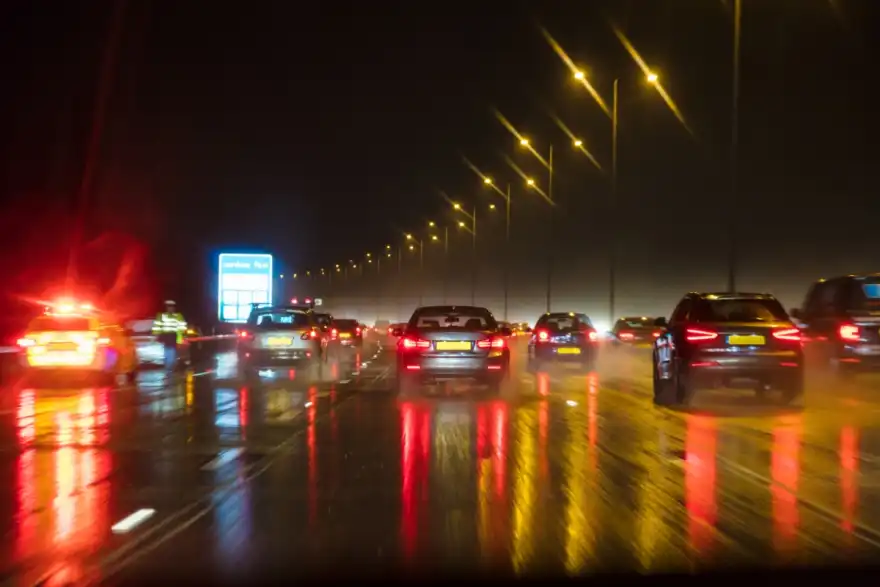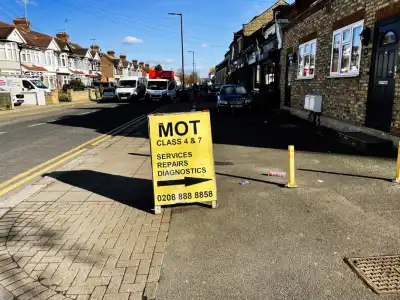
Motorists are being urged to stay extra vigilant ahead of the clocks going back an hour on Sunday, 26 October, as crash rates rise by 11% in the two weeks following the change. Darker evenings, wet conditions and driver fatigue are the main factors behind the seasonal increase.
New figures from sleep experts MattressNextDay reveal that UK police forces have dealt with almost 10,000 incidents linked to tiredness or lack of sleep since 2020, averaging around five a day.
Using Freedom of Information data from UK police and fire services, the study examined emergency callouts related to fatigue or sleep deprivation between 2020 and 2025.
The UK’s most sleep-related incidents, 2020–2025
| Rank | Police Force | Total Sleep-related Incidents |
| 1 | Hertfordshire Police | 2,687 |
| 2 | Cambridgeshire Police | 1,515 |
| 3 | Leicestershire Police | 880 |
| 4 | Greater Manchester Police | 725 |
| 5 | Kent Police | 462 |
| 6 | Thames Valley Police | 342 |
| 7 | Sussex Police | 280 |
| 8 | Devon & Cornwall / Dorset Police | 798 |
| 9 | Essex Police | 233 |
| 10 | Wiltshire Police | 201 |
| 11 | Surrey Police | 198 |
| 12 | North Yorkshire Police | 188 |
| 13 | Police Service of Northern Ireland | 185 |
| 14 | Warwickshire Police | 125 |
| 15 | Bedfordshire Police | 125 |
Hertfordshire tops the list
Hertfordshire Police recorded the highest number of sleep-related incidents at 2,687 since 2020. The figure peaked in 2024 with 525 cases, a 27% rise compared with 2022. DVLA data also shows that Hertfordshire ranks 14th nationally for drivers with sleep-related conditions, totalling 3,649 cases.
Cambridgeshire and Leicestershire follow closely
Cambridgeshire Police ranks second, recording 1,515 fatigue-related incidents in the same period. 2024 was its worst year, with 310 cases. DVLA data places Cambridgeshire 27th for sleep-related driving conditions, with 2,551 affected drivers.
Leicestershire is third, logging 880 incidents since 2020, a 39% increase by 2024. The county also has the sixth-highest rate of drivers with sleep conditions, with 84.46 per 10,000. In 2022 alone, 17 fatal collisions were recorded.
Fatigue-linked accidents now outnumber sleep-related fires
Since 2020, police have attended more than 9,700 sleep-related accidents, while fire and rescue services dealt with over 8,300 incidents linked to tiredness, bringing the combined total to more than 18,000 across the UK.
Sleep-related fire callouts have fallen by 16.7% since 2020, but fatigue-related road incidents have climbed 27.5%, peaking at nearly 2,000 in 2024. During lockdown in 2020, sleep-related fires hit their highest level, with 1,499 recorded, as more people stayed home and cooked more often.
Expert advice on how to prevent fatigue-related accidents
Martin Seeley, Senior Sleep Expert at MattressNextDay, said:
“The average Brit racks up around 32 hours of sleep debt each month, significantly raising accident risk. Prevention is crucial, so aim for seven to eight hours of sleep nightly and keep a consistent sleep and wake schedule, even on weekends.
“Accident risk peaks between 2am and 6am and again between 2pm and 4pm when alertness drops. If you notice frequent yawning, difficulty focusing or long blinks, stop what you’re doing immediately.”
Recognising drowsy driving and staying safe
Nearly half of UK drivers (49%) admit to driving on fewer than five hours’ sleep, and one in five road accidents is linked to driver fatigue. Experts warn that driving tired can be more dangerous than drink-driving due to slower reaction times and poor decision-making.
Warning signs of fatigue include:
- Repeated yawning
- Heavy eyelids or blurred vision
- Slow reactions
- Difficulty focusing or keeping your head up
If you experience these symptoms, pull over safely. Take a 15–20 minute nap, drink caffeine, stretch, get some air and only resume driving once you feel fully alert.
To reduce the risk before you set off, Seeley recommends the 10-3-2-1-0 method for better sleep:
- 10 – Stop drinking caffeine 10 hours before bed
- 3 – Avoid food or alcohol 3 hours before bed
- 2 – Stop working 2 hours before sleep
- 1 – Turn off screens 1 hour before bed
- 0 – The number of times you’ll hit snooze




